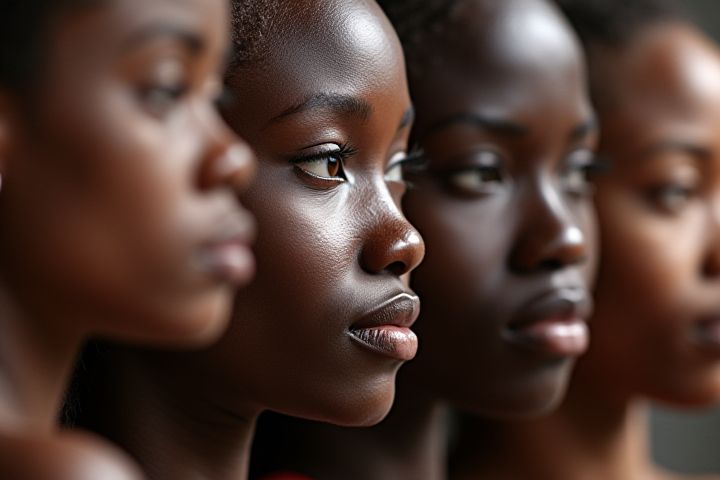
Gender equality in Nigeria remains a critical issue, with significant disparities affecting women's rights and opportunities across various sectors. Many women face barriers in education, healthcare, and employment, leading to high illiteracy rates and limited access to resources. Traditional cultural norms often perpetuate gender roles that hinder women's participation in decision-making processes and leadership positions. Legislative frameworks, such as the Gender Equality Bill, have been proposed to address these challenges, yet implementation remains inconsistent. Engaging local communities in advocacy efforts can empower women, promote awareness, and foster an environment conducive to equality and empowerment.
Legal Framework
In Nigeria, gender equality is supported by various legal frameworks, including the 1999 Constitution, which guarantees equal rights for all citizens. The Violence Against Persons (Prohibition) Act, passed in 2015, provides comprehensive measures against gender-based violence, aiming to protect women and girls from harmful practices. The National Gender Policy promotes equitable participation of both genders in social, economic, and political spheres, yet implementation remains inconsistent across different states. You can advocate for legal reforms that strengthen protections and enhance the role of women in leadership to foster a more equitable society.
Gender Disparities
Gender disparities in Nigeria are evident across various sectors, including education, employment, and healthcare. Women often face significant barriers, such as limited access to quality education and healthcare services, resulting in lower literacy rates and higher maternal mortality rates compared to their male counterparts. Economic opportunities are also imbalanced, with women frequently underrepresented in leadership roles and facing wage gaps in the job market. Addressing these disparities is crucial for promoting gender equality, empowering women, and fostering sustainable development in Nigeria.
Education Access
In Nigeria, achieving gender equality in education access is crucial for fostering empowerment and economic growth. Initiatives such as scholarships and mentorship programs specifically target girls, addressing barriers like early marriage and cultural biases. Government policies aim to increase enrollment rates and retention in primary and secondary schools, ensuring that girls receive the same quality of education as boys. By prioritizing gender equality in education, Nigeria can unlock the potential of half its population, paving the way for a more equitable and prosperous society.
Employment Opportunities
In Nigeria, gender equality in employment opportunities remains a critical issue, with women often facing significant barriers to accessing the job market. Despite a growing recognition of the importance of equal representation in the workforce, cultural norms and discriminatory practices frequently hinder women's employment prospects. Initiatives aimed at promoting women's skills development and entrepreneurship are essential to bridge this gap and empower women economically. By creating policies that support equal hiring practices and workplace inclusivity, Nigeria can move toward a more equitable employment landscape for all genders.
Health Inequities
Gender equality in Nigeria significantly impacts health inequities, particularly in access to reproductive health services. Women often face barriers such as poverty, cultural norms, and inadequate healthcare infrastructure, leading to higher maternal mortality rates and limited access to family planning methods. Ensuring equitable access to healthcare resources can improve women's overall health outcomes and empower them to make informed decisions about their bodies. Promoting gender-sensitive policies and education is essential for addressing these disparities and achieving comprehensive health equity in Nigeria.
Cultural Norms
Gender equality in Nigeria is significantly influenced by deep-rooted cultural norms that shape societal attitudes toward gender roles. Traditional practices often prioritize male leadership and authority, leading to systemic barriers that hinder women's access to education, employment, and decision-making positions. Efforts to promote gender equality must address these cultural perceptions through community engagement, educational initiatives, and policy reforms that empower women. By challenging and redefining these norms, Nigeria can foster an environment where both men and women contribute equally to societal development.
Political Representation
In Nigeria, gender equality in political representation remains a critical issue, as women hold a mere fraction of the parliamentary seats despite constituting half of the population. Various initiatives, such as the Not Too Young to Run Act, aim to empower young women and encourage their participation in politics. The implementation of quotas and affirmative action policies could significantly enhance women's representation at all levels of government. Increased representation not only promotes diverse perspectives but also drives policies that address issues like education, health, and economic empowerment, benefiting the broader society.
Gender-based Violence
Gender equality in Nigeria is critically undermined by the pervasive issue of gender-based violence (GBV), which affects women's health, safety, and socio-economic status. Traditional norms and inadequate legal protections often perpetuate a culture of silence around abuse, leaving many victims without recourse. Organizations work tirelessly to raise awareness and advocate for policy reforms aimed at protecting women's rights and fostering a supportive environment. Addressing GBV is essential not only for empowering women but also for promoting sustainable development and social stability in the region.
Economic Participation
Economic participation in Nigeria is crucial for advancing gender equality, particularly in empowering women in the workforce. Despite significant contributions to agriculture and small-scale businesses, women face barriers such as limited access to credit, education, and decision-making roles. Initiatives aimed at enhancing women's financial literacy and entrepreneurship promote their inclusion in the economy. By addressing systemic inequalities and creating supportive policies, Nigeria can harness the potential of its female population, fostering sustainable economic growth.
Women's Rights Movements
Gender equality in Nigeria is significantly championed by various Women's Rights Movements that advocate for equal access to education, healthcare, and economic opportunities for women. These movements work tirelessly to combat gender-based violence and discriminatory practices prevalent in many Nigerian communities, raising awareness through grassroots campaigns and policy advocacy. Empowerment programs aim to equip women with skills and resources, fostering their participation in the workforce and leadership roles. As you engage with these movements, you contribute to creating a more equitable society, where women's voices and rights are recognized and respected.
